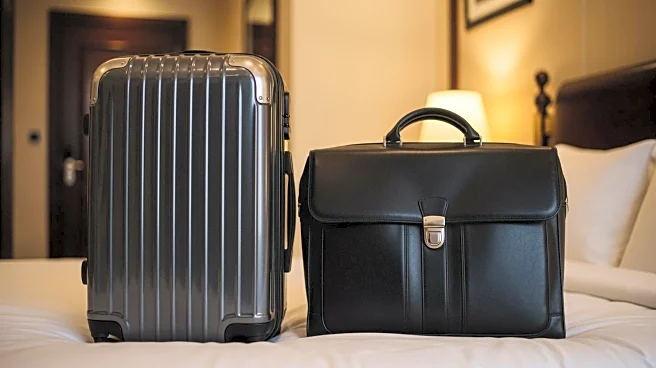What's Happening?
Bleisure travel, a blend of business and leisure activities during a single trip, is gaining traction among businesses and travelers. This trend allows professionals to extend their work trips with personal
vacations, offering a way to achieve work-life balance. Companies are increasingly supporting this model, recognizing its potential to boost employee morale and productivity. The concept involves business travelers using their free time to explore new destinations, thereby enhancing their overall travel experience. Examples include attending a conference in a city and then spending extra days exploring local attractions. The rise of virtual meetings and remote work has blurred the lines between personal and professional lives, making bleisure travel a more structured and facilitated option by companies.
Why It's Important?
The growing popularity of bleisure travel reflects a shift in corporate travel policies, aiming to improve employee satisfaction and retention. By integrating leisure into business trips, companies can offer a perk that enhances the quality of life for employees, potentially reducing burnout and increasing productivity. This trend also supports cultural understanding and strengthens business relationships, as travelers gain insights into local customs and practices. Additionally, bleisure travel can contribute to sustainability efforts by reducing the need for separate leisure trips, thus lowering the carbon footprint associated with travel. As businesses compete to attract skilled workers, offering bleisure travel options can be a significant advantage.
What's Next?
As bleisure travel becomes more prevalent, companies may need to revise travel policies to accommodate this new dynamic. This includes addressing legal and insurance issues, ensuring compliance with travel guidelines, and managing expenses related to leisure activities. Businesses might also explore ways to facilitate the separation of business and leisure expenses, such as offering payment-splitting options for travel costs. Service providers in the travel industry are likely to adapt their offerings to cater to bleisure travelers, enhancing the overall travel experience. The trend is expected to grow, with more companies recognizing the benefits of supporting work-life balance through bleisure travel.
Beyond the Headlines
Bleisure travel raises ethical and legal considerations, particularly in defining the boundaries between business and leisure activities. Companies must navigate potential challenges in travel policies, such as duty of care and compliance issues. Additionally, the trend highlights a cultural shift towards valuing employee well-being and satisfaction, reflecting broader changes in workplace dynamics. As businesses increasingly focus on employee-centric policies, bleisure travel represents a manifestation of this approach, offering a more balanced and fulfilling travel experience.











